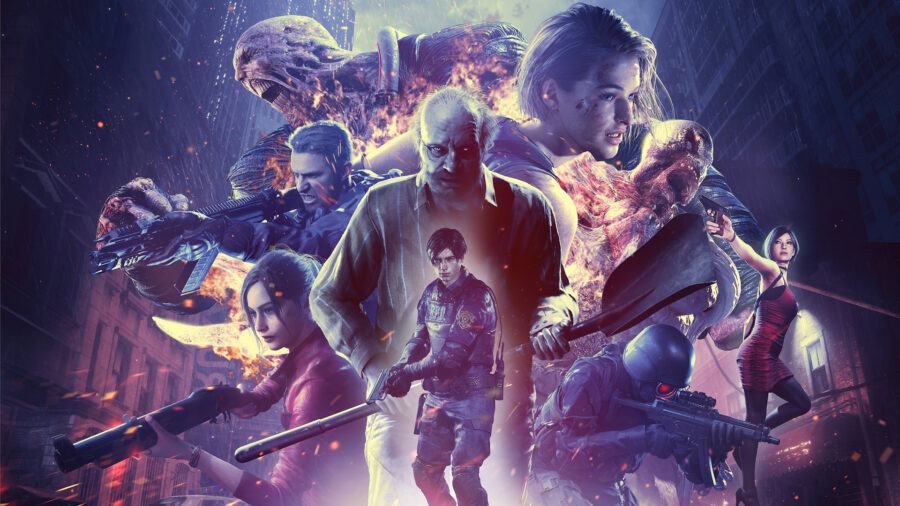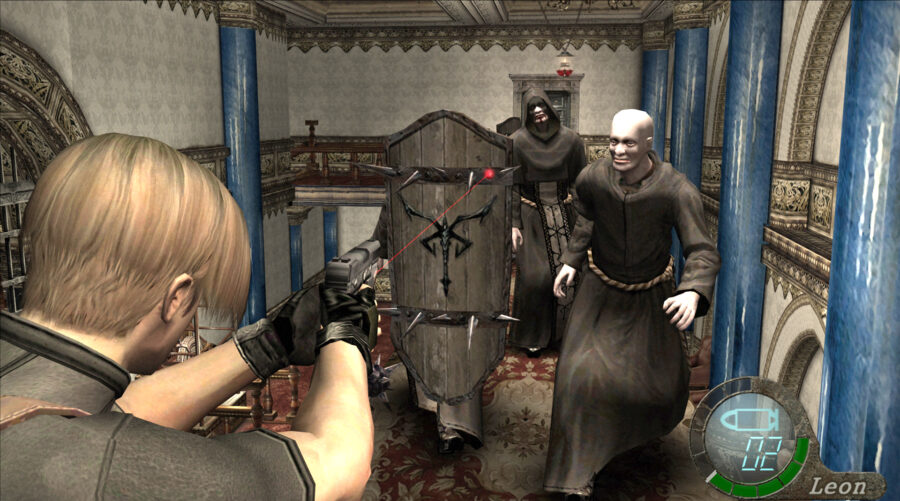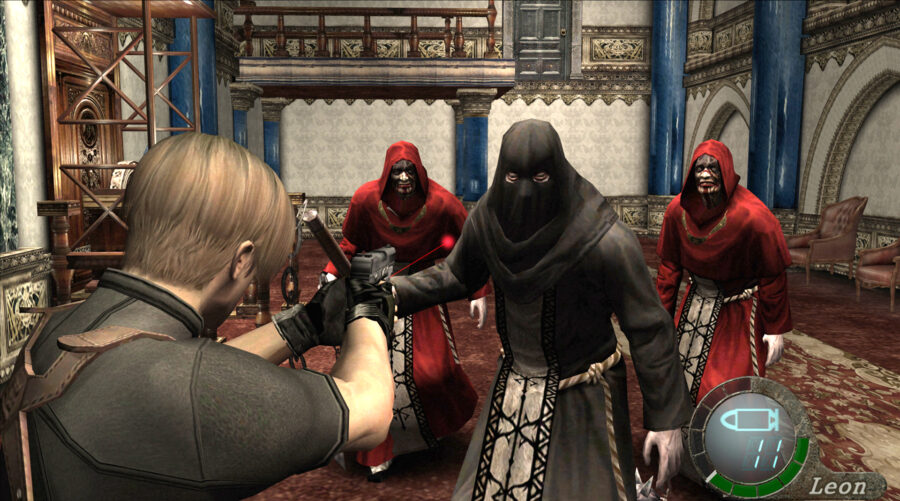The Best Resident Evil Game Has Set A Standard Its Successors Can’t Beat
It continued to rely upon survival horror elements the franchise is known for and heralded action elements. But what exactly makes this the best Resident Evil game in the franchise?
This article is more than 2 years old

While 2019’s remake of Resident Evil 2 and 2020’s remake of Resident Evil 3 gathered all the laurels as some of the best high-quality remakes in the gaming industry, the fans are excited for the potential remake of 2005’s Resident Evil 4 video game. When this 17-year-old gaming gem was released back in 2005, it blew the competition out of the water. It continued to rely upon survival horror elements the franchise is known for and heralded action elements that are still present all through the third-person gaming genre. But what exactly makes this the best Resident Evil game in the franchise? Let’s find out.
Resident Evil was already a well-established gaming franchise by the time the development of Resident Evil 4 began in 1999. Unfortunately, as with all well-established franchises at the time, things were growing stale, the fandom wasn’t really content with the direction in which their favorite franchise’s headed, and the creatives at Capcom did a fantastic job of taking notes. Resident Evil 4 was supposed to refresh the franchise and introduce some new gameplay elements that would prolong the series’ lifespan.
The best Resident Evil game was originally developed for PlayStation 2, scheduled to release shortly after the console launched in 2000. However, internal shifts within Capcom, and the desire to create a shining jewel in a rotting crown of zombie flesh, led to a long development cycle of six years, and four original iterations of the game were entirely scrapped. In addition, while the creative team behind the franchise wanted to introduce more action elements to the game, executives believed that those elements would be unnecessary and would eventually deter players away from the game, severely affecting the profits.

But not all effort was in vain; one of those scrapped versions was so packed with action that it was reworked into what’s today known as Devil May Cry. But we digress. The other three versions of the game were simply too similar to the previous entries in the Resident Evil franchise, and one of them was even deemed too expensive to produce. So the series producer Shinji Mikami went back to the drawing board, and Resident Evil drew in its first breath of air in 2005.
The game centered around Resident Evil 2′s Leon F. Kennedy, a special agent who travels to Spain in an attempt to rescue the President’s daughter Ashley, who has been kidnapped by a terrifying cult. Admittedly, the story isn’t as complex as one might’ve hoped for, especially considering that Capcom creatives had six years to develop it, but Mikami later admitted that the entire narrative was written “almost overnight,” so some simplicity is to be expected. But what the game lacked in the story department it more than made up with its gameplay, which is where the best Resident Evil game really shines.
Put simply, Resident Evil 4 managed to capture the survival horror spirit and thrill of the original game and combine it with newly introduced third-person shooter elements — and it worked beautifully. So beautifully that even executives were pleased and have been trying to replicate this gameplay formula unsuccessfully ever since. It still relied on horror elements, but the underlying fear its in-game environment was further complemented with quick-time events that would keep players on their toes, like hearing the sound of a chainsaw and franticly looking for the direction it’s coming from until it’s too late. Game over, start from the checkpoint.

Zombie-riffled Racoon City was replaced by the murky backdrops or parochial European village, its zombies replaced by parasite-infected cult-worshiping villagers that would haunt you while repeating the words “Mueres, mueres” (“Die, die”) in a prayer-like fashion while attempting to hack you with a sickle. And just when players would consider finally shooting the menacing villager, a thought would pop, advising against the action. Shooter games usually rewarded players for performing headshots, but what added to Resident Evil 4‘s horror element was the uncertainty of the act. A small fear-ridden microsecond would ensue after each and every headshot — would the headless villager drop dead on the ground, or would a deadly parasitic worm pop out of their neck hole and attack you?
Everything was frightening in this game, from the background art, for which Capcom even had legal troubles, its menacing villagers and castle staff, its antagonist, and its moments of pure psychological dread backed up by jump scares. And they extended all the way through the entire narrative, several side missions, and gameplay modes. The main story took 15 hours to complete, and with such a fantastic blend of survival horror and action elements, it’s entirely clear why Resident Evil 4 became the highest-ranking title in the entire franchise.
Then there’s also the game’s legacy. The game was an absolute hit that Capcom tried but never actually managed to replicate. Resident Evil 5 is still the best-selling title in the franchise, but its success was partially driven by how great the Resident Evil 4 experience was — the game itself wasn’t as revolutionary as its predecessor. Nevertheless, Resident Evil 4 greatly impacted the third-person shooter genre, especially with its introduction of the over-the-shoulder camera and aiming mode. Sure, other games have employed it earlier, but none came even close to Resident Evil 4‘s use of such camera angle.
Looking at the gaming releases since, it’s quite evident that Resident Evil 4 influenced innumerable gaming titles, including the Grand Theft Auto, Uncharted, and The Last of Us franchises. The developers of the original Gears of War, an action-packed third-person shooter, even openly admitted that they were heavily influenced by Resident Evil 4. The game literally has everything gamers wanted from a Resident Evil video game. Considering that Capcom took it upon themselves to recreate the franchise’s earliest titles into playable PlayStation 4 and Xbox One releases, it’s only a matter of time before it resurrects the fan-favorite title. Or will it leave the remastering work for the fans to deal with.












